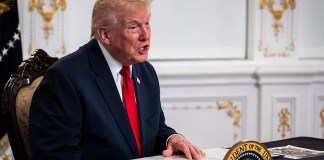Gilbert Achcar
Well, the first intifada peaked in 1988, especially during the first half of that year. It was a grassroots movement, organized through local and popular committees — a true mass mobilization that saw significant participation from women. People of all ages were present. The movement created a real moral crisis within Israeli society, and even within the Israeli army. It also generated considerable international sympathy for the Palestinian cause.
So why did it fail? First, because Israeli repression was intense. But more importantly, the PLO [Palestine Liberation Organization] took over the leadership and hijacked the intifada. Yasser Arafat and the PLO redirected it toward their own project of establishing a so-called Palestinian state, which eventually led to the 1993 Oslo Accords. A key turning point was the shift away from the local leadership within the occupied territories to the PLO leadership in Tunis. From there, it began issuing official statements in the name of the intifada via radio, effectively sidelining the grassroots leadership. That marked a major step backward for the movement’s autonomy and direction.
Second, mass struggle doesn’t win in one shot. It happens in waves — each wave strengthens the movement and gradually weakens the adversary. It’s a question of the balance of forces. When your enemy is militarily much stronger and fully prepared to kill, it’s not in your interest to initiate armed attacks, even less so if your enemy is backed by a majority of the land’s residents due to the uprooting of your own people. If you do, they will crush you.
But if you engage in popular struggle, you gain moral superiority and can attract much broader support. In such a case, the enemy finds itself in a more difficult position: if it responds by massacring peaceful demonstrators, it becomes widely condemned. It loses legitimacy in the eyes of the international public. Israel, in particular, relies heavily on support from the West — militarily, politically, diplomatically, and it is therefore affected by Western public opinion.
To give a comparison: take the black population in the United States and in South Africa. In South Africa, black people formed an overwhelming majority, so it made sense strategically for them to resort to armed struggle against the apartheid regime along with mass struggle.
In contrast, the black population in the United States, as a minority, had no chance of winning through violence. The civil rights movement, with figures like Martin Luther King Jr, succeeded by using nonviolent mass struggle to expose the brutality of the system. That certainly played a much greater role in advancing the anti-racist struggle than those who called for armed struggle, like the Black Panthers. That path didn’t go far because it was a dead end. You can’t fight with weapons against an enemy that is vastly stronger than you. That only provides your opponent with a pretext — an excuse — to respond with overwhelming violence. They’ll kill far more people than they would if they were facing only peaceful protest.
It’s a matter of strategy. You must adapt your methods to your capacities. The means you use depend on your strength and the overall balance of forces. The belief held by Hamas — that armed violence would liberate Palestine — was completely delusional. And here we are. No matter how one tries to spin it, it is clearly a major disaster. The outcome of these events is an utter catastrophe. That being said, acknowledging the disastrous consequences of October 7 in no way justifies the genocidal war that Israel has since waged.
For the first year of the genocide, most Western governments did not even pretend to question Israel’s so-called right to self-defense — I say “so-called” because it is highly questionable that an occupier has a right to self-defense against the legitimate right of the occupied to resist occupation — even though Israel had killed very early on vastly more Palestinians than the number of Israelis killed on October 7.
But they went even further: Western governments, not only the United States but also the European powers, actively opposed calls for an immediate cease-fire for several months, and Washington still does. In doing so, they effectively endorsed the war — the genocidal war that was unfolding. When you oppose a cease-fire, you are in favor of the war continuing. That was their position. It is a shameful historical stance.
As I explain in my book, this moment marked the final nail in the coffin of the so-called rules-based liberal international order. This order has always been fiction — but never has that fiction been so starkly exposed as now. The double standard is blatant, and nowhere more so than in the striking contrast between how Western governments responded to Russia’s war on Ukraine and how they responded to Israel’s war on Gaza.
All of this has a huge historical impact. It paved the way for the continuing rise of neofascism globally. The Biden administration’s position played an important role in the defeat of the Democrats and paved the way for Trump’s return to the White House — this time with a much clearer neofascist agenda and behavior than during his first term.
This has further boosted the far right across the world — from Germany to France to Spain and elsewhere. We are now living, as I wrote in an article a few months ago, in what I call the age of neofascism. All of this is linked to liberalism’s total loss of credibility.
This is why the Gaza genocide, and Western governments’ attitude toward it, will be remembered as a historical turning point — a key moment that exposed and completed the collapse of Western, or Atlanticist, liberalism.
Great Job Gilbert Achcar & the Team @ Jacobin Source link for sharing this story.





